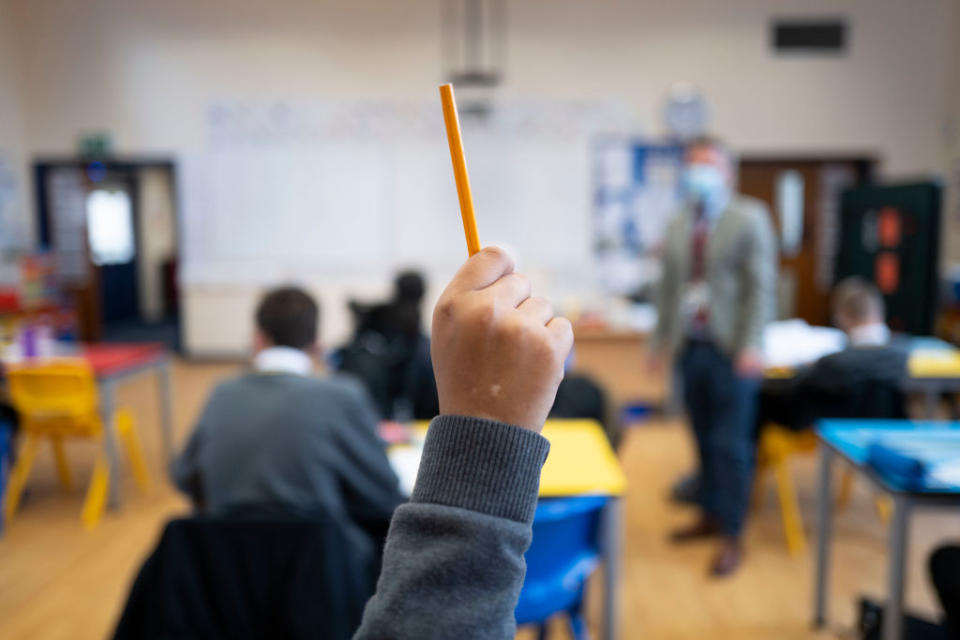‘Challenging policy’: What the pushback to private school VAT plans reveals

VAT… easy as ABC? It may not quite be Blair’s ‘education, education, education’ mantra, or Michael Gove’s multi-academy trusts.
But for Sir Keir ‘my-father-was-a-toolmaker’ Starmer, there’s been one education policy that’s been front and centre of his manifesto and the first 100 days.
This is, of course, the plan to impose VAT on private school fees and scrap the business rates relief scheme for these institutions.
Why? Firstly, the policy is a revenue raiser to deliver Starmer’s ‘opportunity’ mission, in line with the party’s promise that every manifesto commitment would be fully costed and funded.
Some £1.51bn could be raised by 2028-29, the manifesto said, to fund education policies including Ofsted reform (£35m) and 6,500 new teachers (£450m).
Breaking down the barriers to opportunity, as Labour puts it, will require things like more teachers, smaller classes and improved careers advice.
Then there’s the appeal to voters. Research by the closely Starmer-linked think tank Labour Together found 39 per cent of Brits think their local schools are getting worse, compared with 19 per cent who think things are getting better.
Being able to talk about funding more teachers, via a symbolic levelling of the VAT playing field, crucially allows ministers and MPs to argue the party’s promises are being delivered, and to create the kind of feel good factor that translates into election victories.
But reaction to the policy has seen a coalition of private schools, teaching unions, and tax specialists form in opposition to education secretary Bridget Phillipson.
Some schools are warning of an exodus of pupils into the state system as parents are priced out of the independent sector, while unions fear the impact of job losses on staff.
Practicality-wise, tax experts suggest leaving just two months for HMRC to ensure some 2,500 private schools are registered to charge VAT could be a somewhat Herculean task.
Shouldn’t Labour have predicted some of these potholes? Well, one consideration is that this is a Treasury-led policy, we’re told.
Pepe Di’Iasio, general secretary of the Association of School and College Leaders (ASCL), says his union has been negotiating with HMT “on how we can help them implement it so it has the minimal impact on children, young people and our members”.
“It’s a challenging policy, it’s dividing people in a way we wouldn’t want to divide,” he says.
Schools, he says, “have been aware of it as a manifesto commitment for some time”. But with a Budget to put together, and a supposed £22bn black hole to fill, it’s perhaps a safe assumption that one specific VAT policy isn’t front and centre of the Chancellor’s mind.
Manifesto commitments are usually stress-tested – to an extent – in civil service access talks and provided to an opposition party following the announcement of an election.
But Dr Catherine Haddon, programme director at the Institute for Government (IfG), stressed that while helpful, “they aren’t a forum where the civil service can provide policy advice”.
She said: “This was a very visible part of Labour’s election pitch – or at least very well known – so you expect the civil service would have done some prior thinking about it.
“[But] Labour were still the opposition at that stage. They wouldn’t have been able to do a lot of detailed work or talk in depth about any problems… it’s difficult to know how much granular detail they would have got into.”
If you want to get granular, Di’Iasio says members are concerned by the 1 January deadline, which creates an urgency for bursars and managers to “register with HMRC and make sure they are compliant… [they’re] worried about not wanting to fall foul of any tax laws”.
He added: “We’re calling for as much support as possible for those bursars at the rough end of trying to comply.”
But he also stresses that the biggest worry is “the impact on young people”, some of whom may be in smaller, religious or special educational needs schools.
“There are large numbers of schools and young people who will benefit from the revenue the tax will bring in – but we also have to support and represent those who will not be,” he says.
Ultimately, Dr Haddon says, these considerations, both practical and ethical, “do show the difficulty of a transition”.
“There is some degree of forewarning and expectations that things will take time but only once you get into government can you start to resolve those issues, and the consequences.”
And despite the pushback, it sounds like this is one battle the government are determined to win.
As Luke Raikes, deputy general secretary of the left-wing think tank the Fabian Society, put it: “The Prime Minister talked last month about trade offs, and this one is easier than most.
“There may be some practical challenges with the timeline for this policy, but those challenges can and must be overcome.”
A government spokesperson confirmed: “Ending tax breaks on private schools will come into force on 1 January as planned. There has been no change in deadlines for schools or parents.”